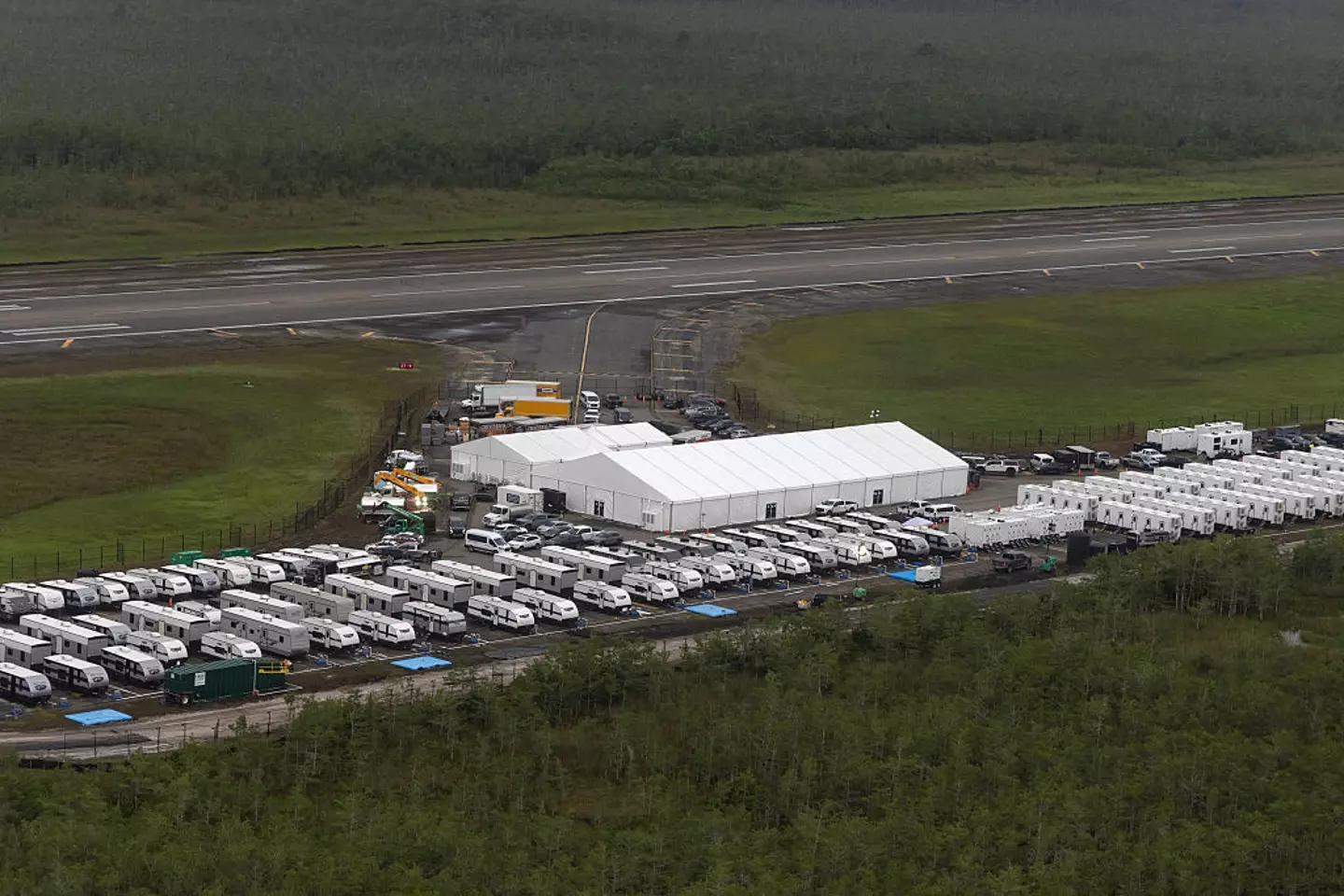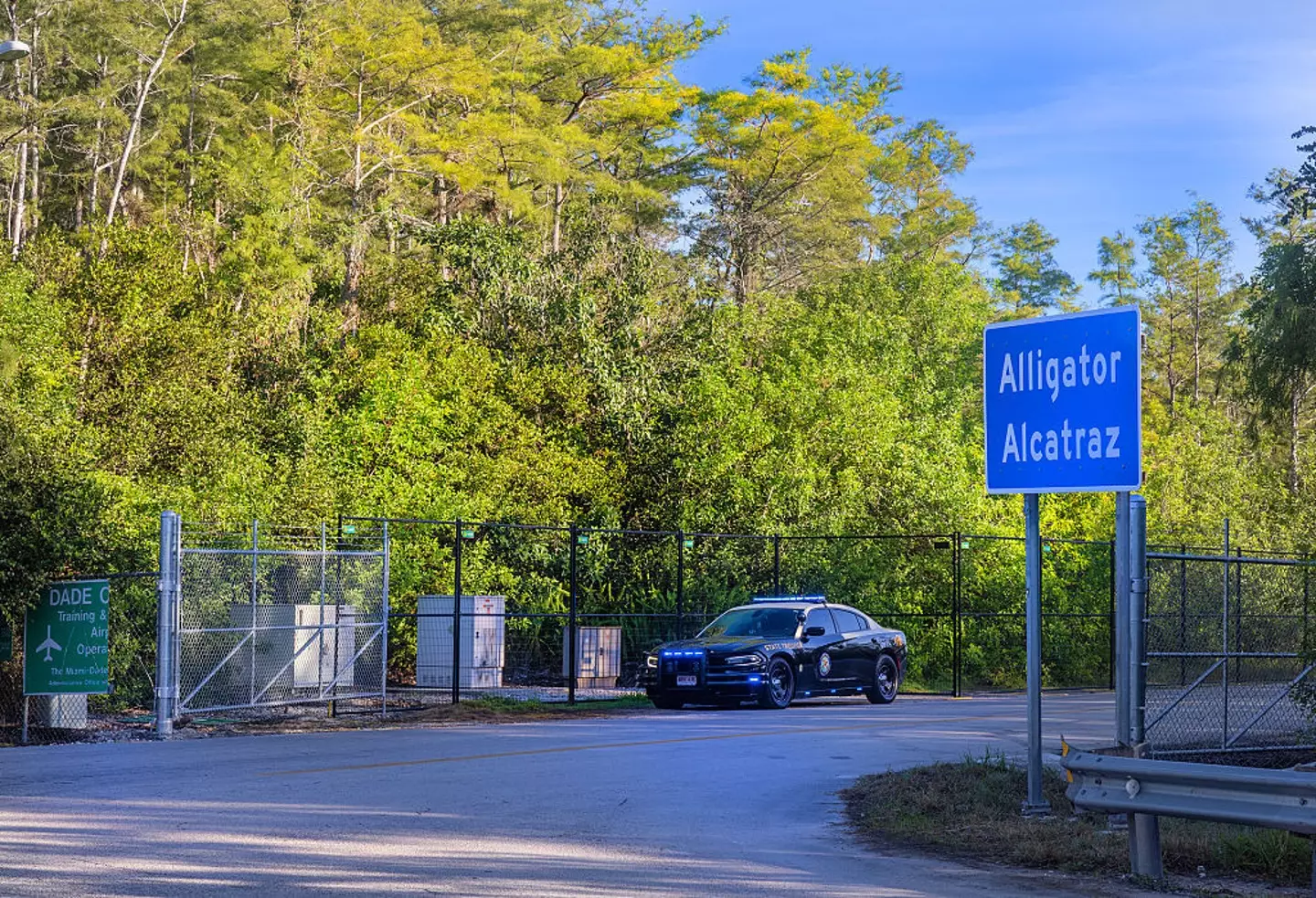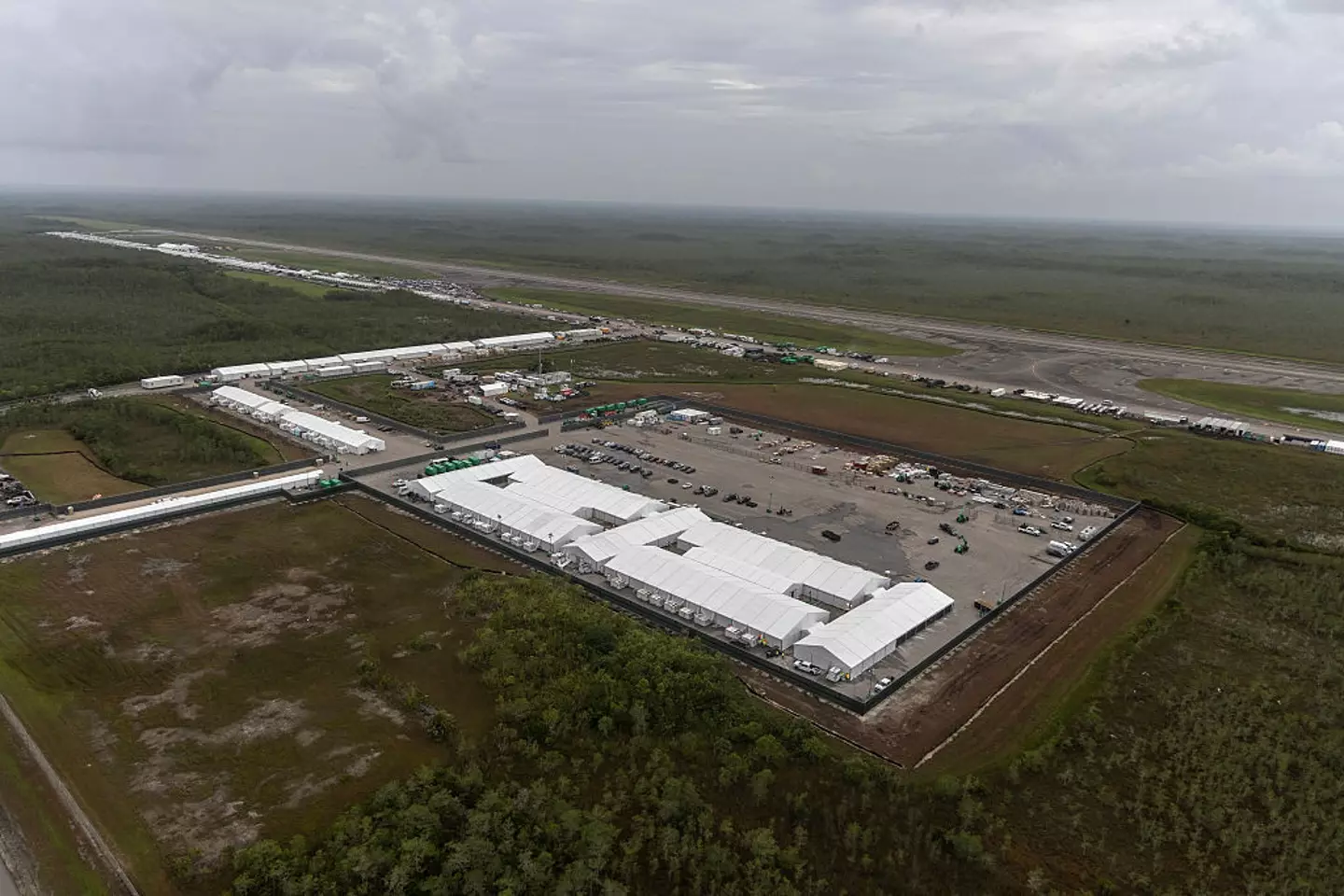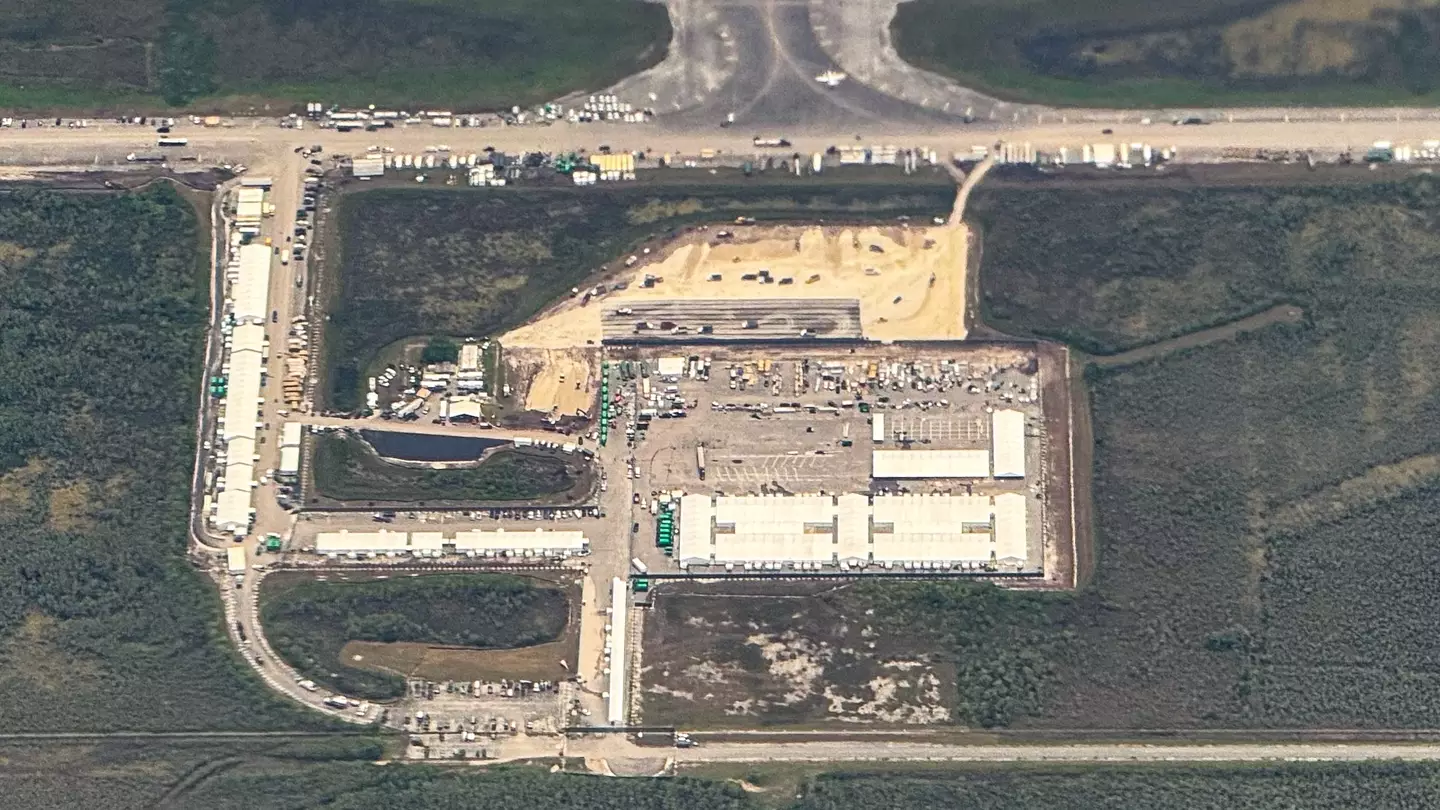A recent development concerning a detention facility known as ‘Alligator Alcatraz’ has highlighted significant taxpayer costs associated with its operation.
Amid President Donald Trump’s continued focus on immigration policies, the state of Florida inaugurated a new detention facility on July 1 located at the former Dade-Collier Training and Transport Airport in the Everglades, west of Miami.
The facility has been dubbed ‘Alligator Alcatraz’ due to its setting, which was described as being surrounded by “alligator and python-infested waters.”
The center, capable of housing up to 3,000 detainees, has faced harsh criticism regarding the alleged conditions within. Reports have surfaced of unsanitary food, lack of bathing water, constant lighting, and other harsh conditions. Detainees have reportedly claimed they hadn’t “seen the sun” in days.

Recently, it was disclosed that the facility has already cost taxpayers $250 million, with construction still not complete.
A Florida official has indicated that the immigration detention center might become vacant within a matter of days. This update follows a legal conflict involving Republican Governor Ron DeSantis’ administration and the federal government regarding the planned closure of the facility in October, according to The Associated Press.
Currently, three lawsuits have been filed against the detention center, challenging its practices. One of these lawsuits stated that while 100 detainees have been deported, others have been transferred to different immigration facilities.
A Miami judge has ordered the detention center to decrease its operations, requiring that all detainees be relocated within 60 days. Florida has appealed this decision, with the government requesting that U.S. District Judge Kathleen Williams’ order be paused, citing an overcrowding issue at other immigration centers in Florida.
In a communication, Rabbi Mario Rojzman of South Florida was invited on August 22 to provide chaplaincy services at the facility.
According to Kevin Guthrie, Executive Director of the Florida Division of Emergency Management, “we are probably going to be down to 0 individuals within a few days.”

Governor DeSantis remarked further on the potential relocation of detainees, as reported by AP: “Ultimately it’s DHS’s decision where they want to process and stage detainees and it’s their decision about when they want to bring them out.”
Federal government attorneys, however, argued that the decision to detain unauthorized immigrants at the center would be “Florida’s decision, not DHS’s,” emphasizing that the facility relies on “state funds on state lands under state emergency authority.”
Initially, the center housed up to 1,000 detainees, but as per a tour by U.S. Rep. Maxwell Frost, only 300 to 350 remain.
A DHS official told Newsweek, “Under President Trump’s leadership, we are working at turbo speed on cost-effective and innovative ways to deliver on the American people’s mandate for mass deportations of criminal illegal aliens. DHS is complying with this order and moving detainees to other facilities. We will continue to fight tooth-and-nail to remove the worst of the worst from American streets.”
Financial records show that state officials have already committed over $245 million in contracts by July to expand facilities at the remote Everglades location.

CNN reported that the facility was expected to cost $450 million annually to operate once fully constructed. The expenditure has sparked public outcry, with critics expressing frustration over what they perceive as financial waste. Comments voiced online include sentiments like, “NEW: ‘Alligator Alcatraz’ will reportedly be empty within days — after $450M in taxpayer funds were poured into the controversial detention site. Emails show Florida officials quietly winding it down amid court orders, outrage, and sacred land violations.”
Others criticized the expenditure, stating that spending $450 million only to shut the facility down “is not fiscally conservative.”
One critic remarked, “One thing this country knows how to do is waste ..”
Opinions on the detention center’s necessity are divided, with some viewing it as essential and others condemning the conditions.
Thomas Kennedy, a policy analyst for the Florida Immigrant Coalition, voiced opposition in an interview with CNN: “The fact that we’re going to have 3,000 people detained in tents, in the Everglades, in the middle of the hot Florida summer, during hurricane season, this is a bad idea all around that needs to be opposed and stopped.”
The appeal against the facility’s closure remains active, leaving the possibility of it staying open if the federal government succeeds in its legal challenge.

